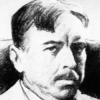Edward Thorndike

Edward Thorndike
Edward Lee "Ted" Thorndikewas an American psychologist who spent nearly his entire career at Teachers College, Columbia University. His work on Comparative psychology and the learning process led to the theory of connectionism and helped lay the scientific foundation for modern educational psychology. He also worked on solving industrial problems, such as employee exams and testing. He was a member of the board of the Psychological Corporation and served as president of the American Psychological Association in 1912. A Review...
NationalityAmerican
ProfessionScientist
Date of Birth31 August 1874
CityWilliamsburg, MA
CountryUnited States of America
Colors fade, temples crumble, empires fall, but wise words endure.
Psychology is the science of the intellects, characters and behavior of animals including man.
Human education is concerned with certain changes in the intellects, characters and behavior of men, its problems being roughly included under these four topics: Aims, materials, means and methods.
All that exists, exists in some amount and can be measured.
The real difference between a man's scientific judgments about himself and the judgment of others about him is he has added sources of knowledge.
Whatever exists at all exists in some amount. To know it thoroughly involves knowing its quantity as well as its quality.
So the animal finally performs in that situation only the fitting act.
Psychology helps to measure the probability that an aim is attainable.
The intellectual evolution of the race consists in an increase in the number, delicacy, complexity, permanence and speed of formation of such associations.
Amongst the minds of animals that of man leads, not as a demigod from another planet, but as a king from the same race.
For origin and development of human faculty we must look to these processes of association in lower animals.
The function of intellect is to provide a means of modifying our reactions to the circumstances of life, so that we may secure pleasure, the symptom of welfare.
He who learns and runs away, lives to learn another day.
To the intelligent man with an interest in human nature it must often appear strange that so much of the energy of the scientific world has been spent on the study of the body and so little on the study of the mind.